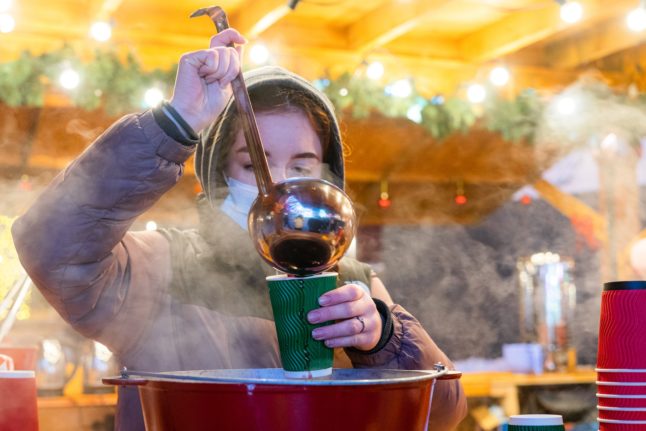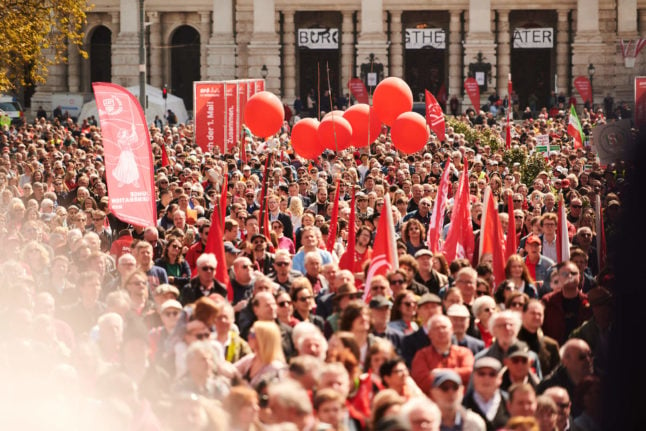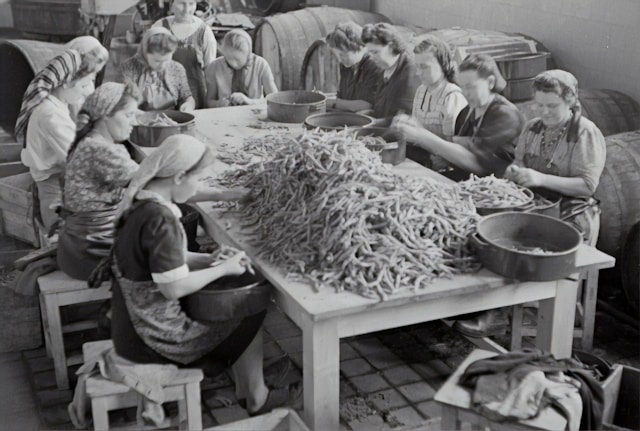1. It existed before Christmas markets
Nowadays, sipping a hot mug of Glühwein is mostly associated with a visit to a traditional Austrian or German Christmas market, which might make you think that it was an invention of wine stand operators.
However, though Austrian and German Christmas markets have been around for nearly 600 years, some form of mulled wine has been a popular winter beverage since Roman times.
READ ALSO: When do Austria’s famous Christmas markets open this year?
The Romans had their own special recipe for Glühwein which combined wine with honey and spices such as pepper, bay leaf, saffron and dates.
The oldest documented consumption of Glühwein can be traced back to Count John IV of Katzenelnbogen, a German nobleman who was the first grower of Riesling grapes in the 15th century. Archaeologists found a special silver plated cup dating from 1420 which he used to sip the sweet and spicy drink.
READ ALSO: What are the best Christmas markets in Austria according to the locals?
2. Don’t overstep the 80C mark
When making your own batch of Glühwein at home – you’ll want to make sure that your ingredients – wine (red or white), sugar, cinnamon, cloves, lemon, orange and star anise – are simmering away at a temperature of no more than 80C.

Above 80C the alcohol evaporates, which is detrimental to the taste and causes the sugar to degrade. The ideal temperature for your Glühwein is between 72C and 73C and the perfect colour is a deep red.
Vienna Christmas markets: the dates and locations for 2023
3. It literally means ‘Glow wine’
The Glüh part of the word for this drink – which sounds a bit like the English word “glue” – comes from the German verb glühen meaning “to glow”.
The origin of the word Glühwein goes back hundreds of years when hot irons were used to heat the wine. It might help you to remember the meaning of the word by looking at the glowing cheeks of your friends while drinking a cup of the hot alcoholic drink.
IN PICTURES: A guide to the main Christmas markets in Austria
4. You can make it without alcohol (or with even more)
To make a non-alcoholic version of Glühwein – or Kinderpunsch (children’s punch) as it’s commonly referred to in German – you can replace the wine with a mixture of fruit tea, apple and orange juice.
If you want to go the other way and make a Glühwein mit Schuss (mulled wine with a shot), you can add a dash of rum or amaretto to your cup full of Glühwein just before drinking.
READ ALSO: How to celebrate Christmas like an Austrian
5. Glühwein makes you merry faster
Alcoholic hot drinks get you drunk faster, as their high temperature ensures that the alcohol enters the bloodstream more quickly and easily. Sugar also promotes alcohol absorption, so a cup of mulled wine will go to your head much more quickly than a glass of normal wine.
READ ALSO: Eight unmissable Christmas experiences in Austria




 Please whitelist us to continue reading.
Please whitelist us to continue reading.
Member comments